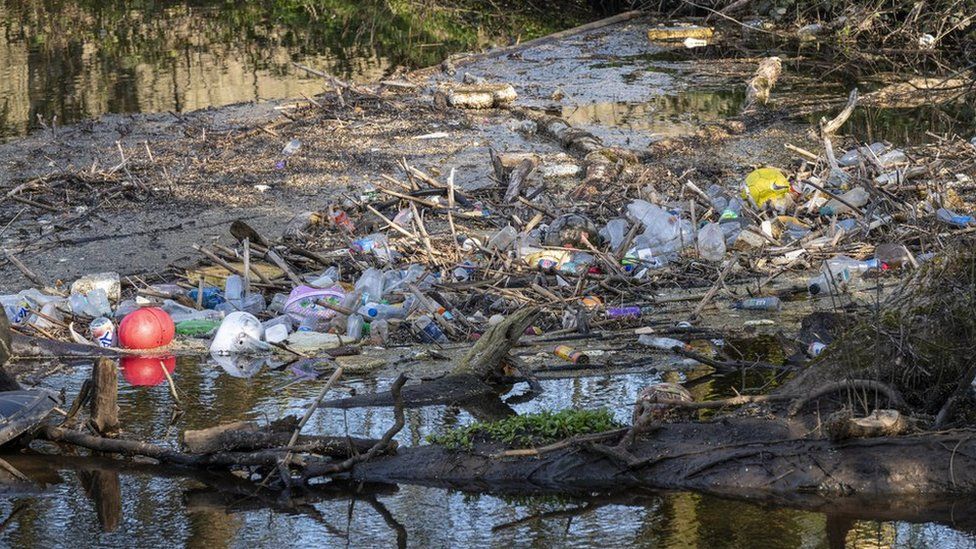
Fewer than one in five of England’s rivers have good ecological status
By Jonah Fisher
Environment correspondent
The government’s efforts to clean up England’s rivers, lakes and seas have been criticised by a key environmental watchdog as “poor”.
The Office for Environmental Protection (OEP), a statutory body, said targets to improve water health were going to be missed by a “large margin”.
It said government plans lack detail, commitment and adequate funding.
A government spokesperson said this government had done “more than any other” to restore waterways.
The OEP was established after Brexit to hold the government and other public bodies to account on environmental issues, given that EU oversight no longer applied.
In this latest report, the OEP looked at whether the laws protecting England’s rivers, lakes and coastal waters from pollution were up to the job, and how they’re being enforced.
“We found the legal framework to be basically sound. But the way that it’s being interpreted and implemented is really being done poorly,” Dame Glenys Stacey, the chair of the OEP, told BBC News.
“That means that government is very unlikely to achieve its ambitions for our waters. In fact, it’s very likely to miss by a large margin,” she said.
At the moment, just 16% of England’s waterways are rated as having Good Ecological Status. The government stated target is for that to rise to 77% by 2027. But the OEP says reaching 21% is seen as more likely.
“Unless things change, it’s a very poor situation,” Dame Glenys said.
The OEP criticised what it called the government’s “generic one size fits all” approach to improving waterways and said that there needed to be more detail, commitment and funding.
The environment secretary now has three months to respond officially to the OEP report.
But a spokesperson provided immediate comment and said that recent years had seen greatly increased monitoring of sewage discharges and plans to invest billions of pounds in wastewater treatment infrastructure.
Image source, Getty Images
All of England’s sewage storm overflows now have monitors attached to them.
“This government has done more than any other to protect and restore our rivers, lakes and coastal waters with record levels of investment, monitoring and enforcement,” the spokesperson said.
“We welcome this report’s recommendations to go further and will consider them in detail.”
Most of the campaign groups contacted by BBC News said the report confirmed what they already knew.
“It is no surprise that following years of underinvestment, weak regulation and poor instruction on how to deliver plans, that the government are off track for the majority of their plans to improve the health of England’s waterways,” Louise Reddy from Surfers Against Sewage said.
“The long-term health of our rivers is dependent on what we do now to support them,” Mark Lloyd, CEO of the Rivers Trust, told BBC News.
“This report proves our long-held suspicion that current policy and legislation is not enough – we need to change course to save our rivers.”








